How El Niño will change the world's weather in 2014
 Information about this year's likely El Niño...what it means for the Southwest and other parts of the world...
Information about this year's likely El Niño...what it means for the Southwest and other parts of the world...

 Information about this year's likely El Niño...what it means for the Southwest and other parts of the world...
Information about this year's likely El Niño...what it means for the Southwest and other parts of the world...
University of Arizona Cooperative Extension and the National Weather Service – Tucson Forecast office are sponsoring a morning long training workshop on weather and climate information focused on supporting agricultural and resource management decision- making. (read more)
It is not a question of if but when will el niño arrive and what will be its strength? (more)
Warm and dry in SW in last 30 days, upholding winter pattern that favors elevated fire risk in coming months. (more)
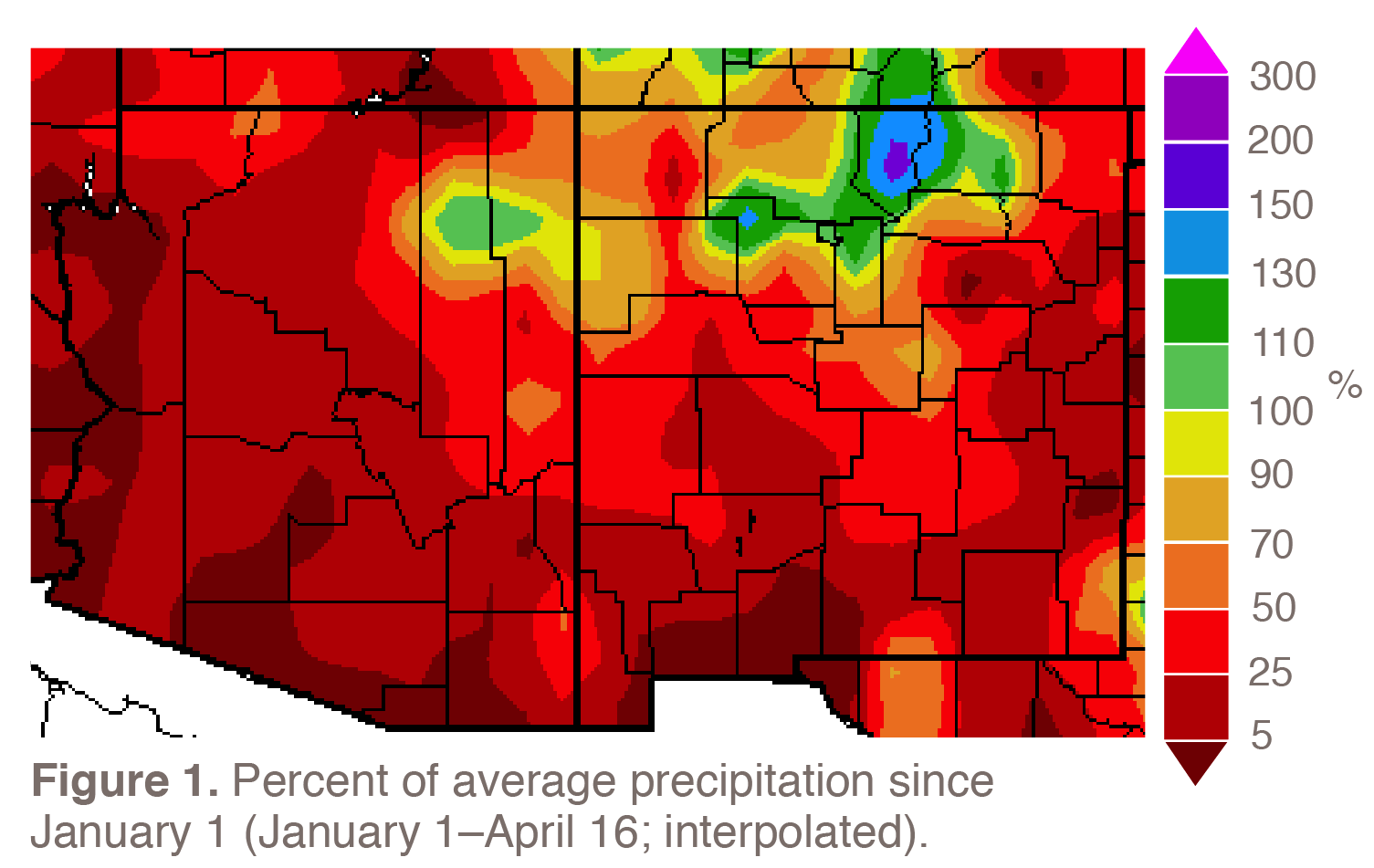
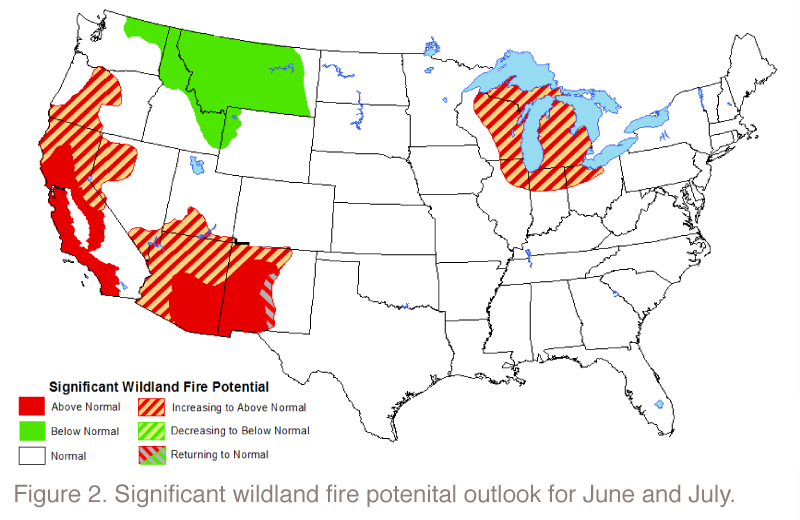
CLIMAS and the Center for Climate Adaptation Science and Solutions (CCASS) co-sponsored a panel of UA experts to discuss the recent report from the Intergovernmental Panel on Climate Change (IPCC) entitled "Impacts, Adaptation, and Vulnerability." This report, from the IPCC's Working Group II (WGII), provides an assessment of the scientific, technical, environmental, economic and social aspects of climate change vulnerability for and impact on ecological systems, socio-economic sectors and human health, with an emphasis on regional, sectoral and cross-sectoral issues. (embedded video)
 CLIMAS and the Center for Climate Adaptation Science and Solutions are co-sponsoring a panel of UA experts to discuss the forthcoming report from the Intergovernmental Panel on Climate Change (IPCC) entitled "Impacts, Adaptation, and Vulnerability." This report, from the IPCC's Working Group II (WGII), provides an assessment of the scientific, technical, environmental, economic and social aspects of climate change vulnerability for and impact on ecological systems, socio-economic sectors and human health, with an emphasis on regional, sectoral and cross-sectoral issues. (read more)
CLIMAS and the Center for Climate Adaptation Science and Solutions are co-sponsoring a panel of UA experts to discuss the forthcoming report from the Intergovernmental Panel on Climate Change (IPCC) entitled "Impacts, Adaptation, and Vulnerability." This report, from the IPCC's Working Group II (WGII), provides an assessment of the scientific, technical, environmental, economic and social aspects of climate change vulnerability for and impact on ecological systems, socio-economic sectors and human health, with an emphasis on regional, sectoral and cross-sectoral issues. (read more)
A video recording of this IPCC panel discussion is now available on the CLIMAS media page.
Diana Liverman, Co-Director, Institute of the Environment and Regents Professor, School of Geography and Development
Understanding local climate impacts in the context of global supply chains (read more)

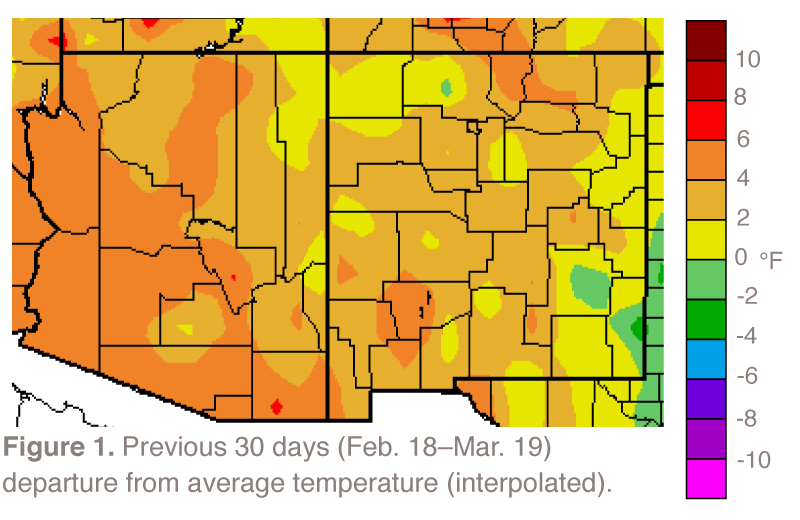
Winter precip in SW has been a dud. Most of region at less than 50 percent of avg since Jan 1 (more)
El Niño-Southern Oscillation (ENSO), better known simply as El Niño or La Niña, is normally a hot topic in the Southwest. La Niña is associated with dry winters, as we experienced most recently during 2010–2012, while El Niño winters generally are soakers. Both events occur, on average, every two to seven years, but lately not much has been happening. Up until recently, scientists have been unsure about what will happen to ENSO in a future warmer climate. However, over the past several months a couple of papers have been published arguing that we do know what will happen. (Read More)
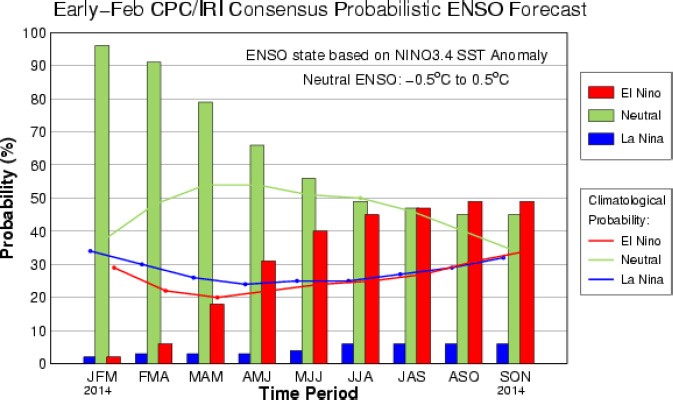
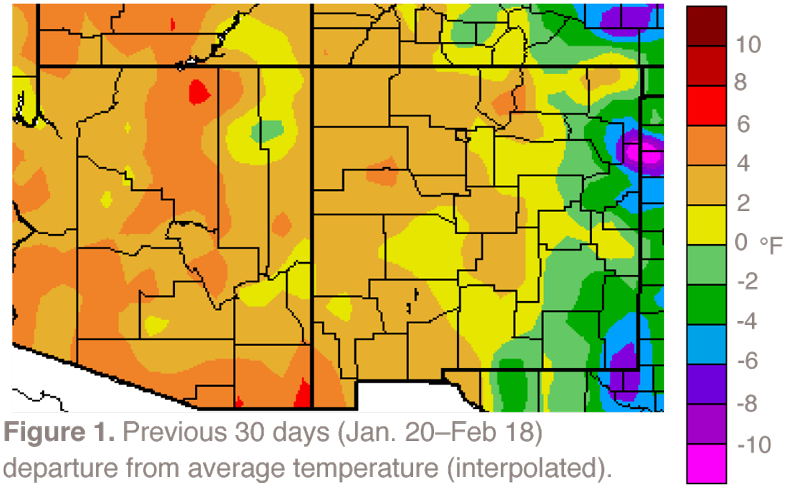
Record temps, scant snow, intensifying drought: this winter seeks superlatives. Colorado snow a silver lining (read more)